commons of tomorrow
open thinking, living, working together. Dialogue between Laurence Rassel and Cornelia Sollfrank 25 October 2025, medientage nrw, Dortmund.
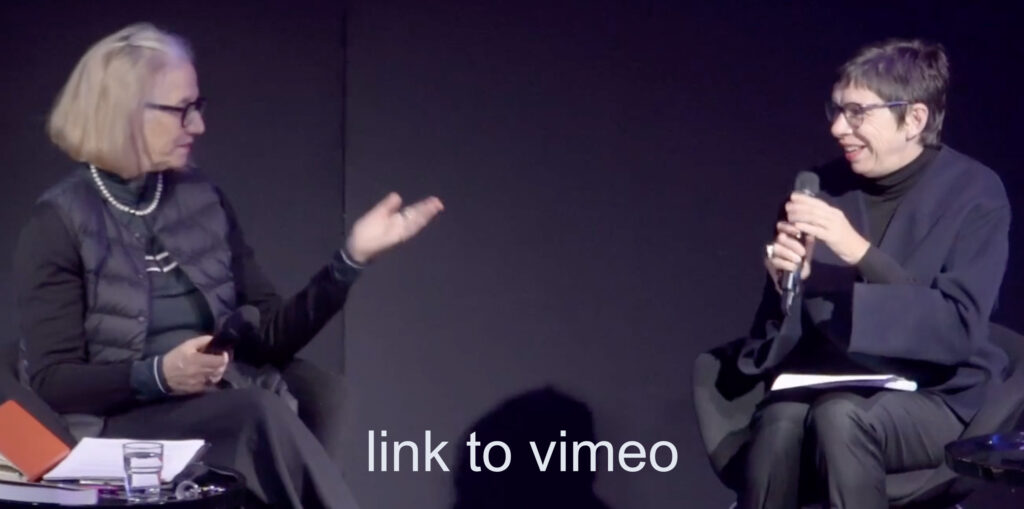
conceptual art
open thinking, living, working together. Dialogue between Laurence Rassel and Cornelia Sollfrank at medientage nrw, Dortmund
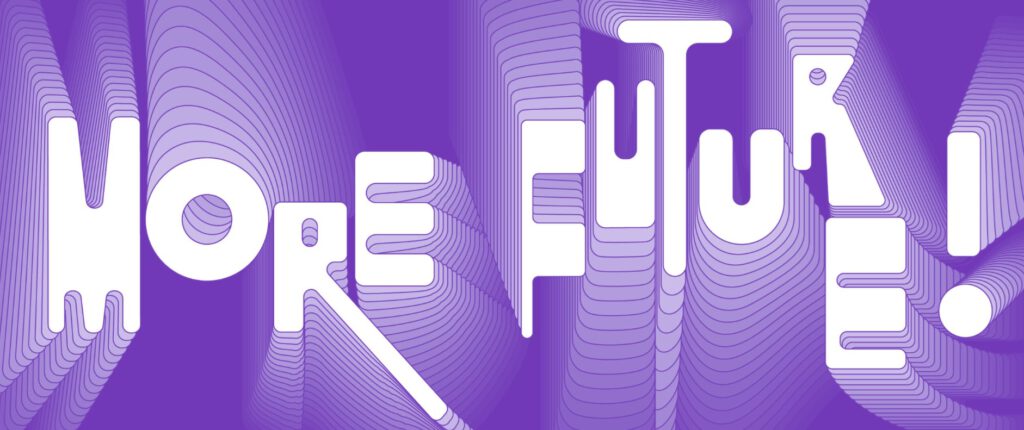
Saturday, October 25, 2025, 6:00-7:00 p.m., HMKV at Dortmunder U, Level 3
https://www.medienwerk.nrw/en/projects/more-future-medienkunsttage-nrw-2025-2/
Berlin / 25 March 2022
Panel discussion as part of the conference „The Whole Life. Archives & Imaginaries“ at Haus der Kulturen der Welt, Berlin.
https://www.hkw.de/de/programm/projekte/veranstaltung/p_195904.php
Cornelia Sollfrank and Felix Stalder / 2021
The two editors of the volume Aesthetics of the Commons (Diaphanes 2021), Cornelia Sollfrank and Felix Stalder, discuss with Westminster Papers in Communication and Culture (WPCC) the potential and meanings of the digital commons in creating new subjectivities and new imaginaries on and off the internet.
Athens / 31 May 2021
Framed by her long-standing research on collaborative practices, geographer and ethnographer Penny Travlou introduces two projects she has been involved lately: Platohedro, a space, a platform and community based in Medellín, Colombia, and the Feminist Autonomous Research Center in Athens (FAC). Platohedro refers to the indigenous concepts of Buen Vivir and Buen Conocer and works on adapting them to the contemporary living conditions in urban societies, while FAC puts an emphasis on commnity-based autonomous knowledge production. Both are concerned with forms of thinking and working together that allow for creating alternatives to extractivist, colonial, racist and anti-feminist modes of (knowledge)production.
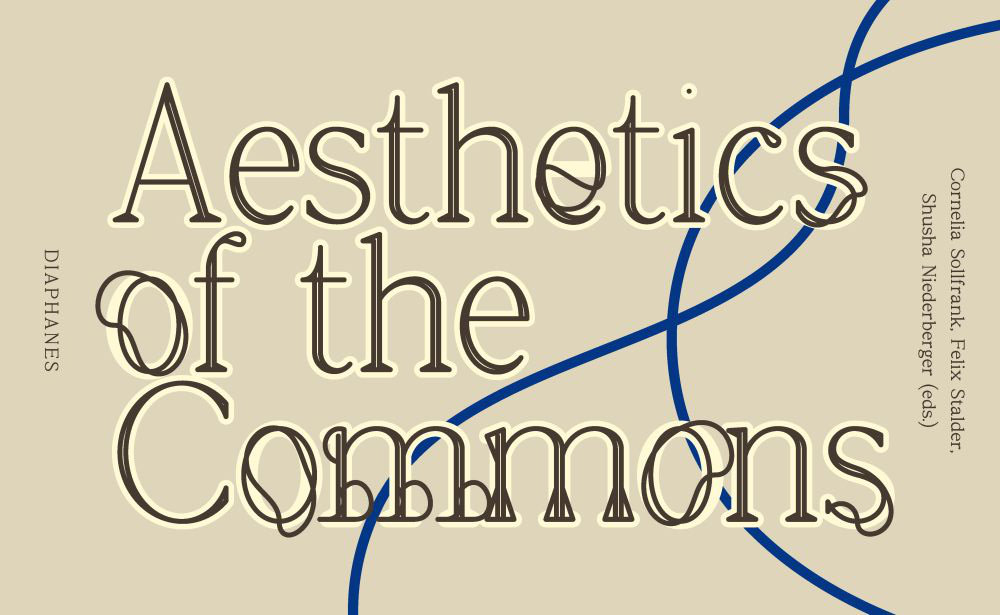
What do a feminist server, an art space located in a public park in North London, a ‘pirate’ library of high cultural value yet dubious legal status, and an art school that emphasizes collectivity have in common? They all demonstrate that art can play an important role in imagining and producing a real quite different from what is currently hegemonic; that art has the possibility to not only envision or proclaim ideas in theory, but also to realize them materially. The book collects ten essays that take up aspects of the cultural and artistic projects that were part of the research project Creating Commons, and brings them into conversation with different fields ranging from cultural, political and feminist theory, philosophy, curatorial studies, and art education.
Aesthetics of the Commons, Sollfrank, Cornelia, Felix Stalder and Shusha Niederberger (eds.), Zurich: Diaphanes (2021)
Softcover, 276 pages
Open Access PDF, 276 pages
https://www.diaphanes.com/titel/aesthetics-of-the-commons-6419
https://creatingcommons.zhdk.ch/aesthetics-of-the-commons/index.html
London, 9 December 2020
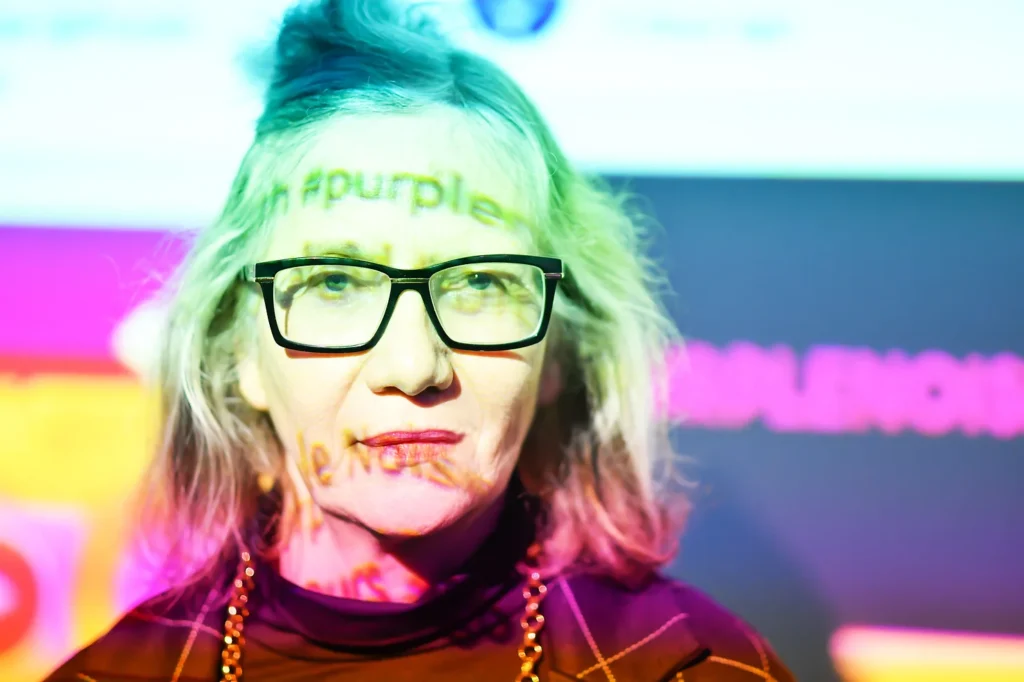
Interview of Cornelia Sollfrank for Museum of Contemporary Digital Art (MoCDA), London. Maria Cynkier talks with the artist about her creative practice, generative art, the power of decentralization and commons, and resisting patriarchal structures in tech.
Cornelia Sollfrank / 2020.
The projects discussed in this text all make cultural products available online for free. What is special about them is that they have all been initiated and are run by small groups of artists or individual artists who provide the infrastructure as well as the contents, and they do so without a budget or any sort of official mandate. Due to their radical open access practiced in the art context, they unfold an enormous symbolic value, parallel to their practical value. In this sense, they are manifestations of current political problems rather than solutions, and their relevance lies in the complexity of the questions they are asking. Published in German in: Sich mit Sammlungen anlegen. Gemeinsame Dinge und alternative Archive. Martina Griesser-Stermscheg, Nora Sternfeld und Luisa Ziaja (Hrsg.), De Gruyter, Wien. Seiten: 85-94.
(exhibition catalogue) The exhibition OPEN SCORES was related to the artistic research project Creating Commons and brought together a series of practices through which artists articulate their specific forms of digital commons. From online archives to digital tools/ infrastructure and educational formats, the projects envision a (post-)digital culture in which notions of collaboration, free access to knowledge, sustainable use of shared resources, and data privacy are central. For the exhibition, each of the projects created a unique score to present their practice.
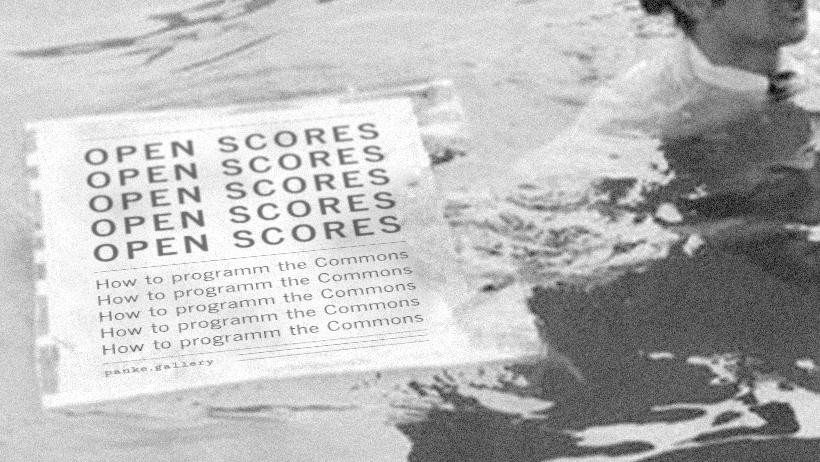
Participants:
Dušan Barok (monoskop.org), Marcell Mars & Tomislav Medak (memoryoftheworld.org), Sebastian Lütgert & Jan Gerber (0xdb.org), Kenneth Goldsmith (ubu.com), Sean Dockray (AAAAARG), Zeljko
Blace (#QUEERingNETWORKing), Ruth Catlow & Marc Garrett (furtherfield.org), Laurence Rassel (erg.be), Marek Tuszynski (Tactical Tech), Michael Murtaugh, Femke Snelting & Peter Westenberg (Constant), Stefanie Wuschitz (Mz* Baltazar’s Lab), Panayotis Antoniadis (nethood.org), Alessandro Ludovico (neural.it), Eva Weinmayr (andpublishing.org), spideralex, Sakrowski (curatingyoutube.net), Creating Commons.
Curated by Shusha Niederberger, Cornelia Sollfrank and Felix Stalder.
House of Electronic Arts Basel (HeK) / Basel / 16 September 2018
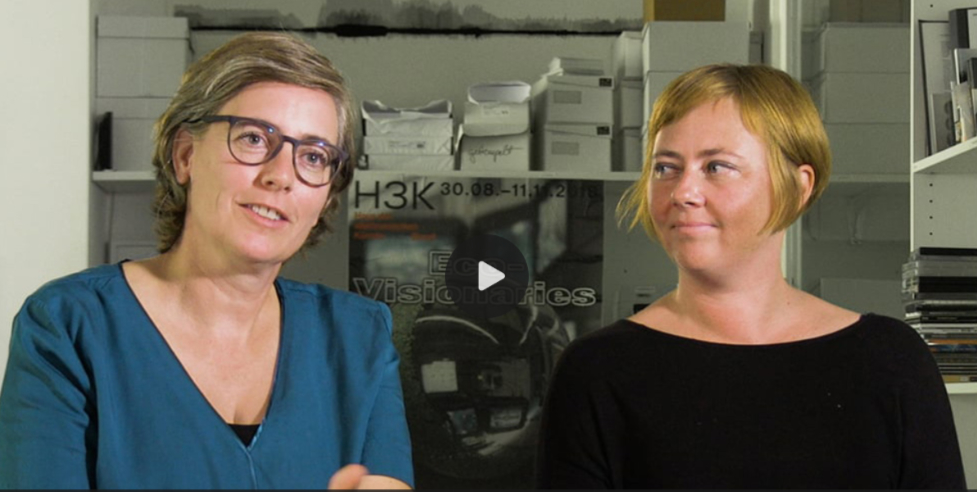
In this interview, Femke and Spideralex talk about their shared practice of engaging with what they call feminist technologies. They discuss their understanding of technology as an embodied practice, that bears desired relations as well as terrible connections. How can we live in ungracious times? They explore, how digital infrastructure could work differently with the help of the feminist server, which is both a real server, a need, and at the same time a thinking tool. Within this discussion, they also address questions of autonomy versus ongoingness, the role of language as a tool of investigation, and the cultural dimensions of technology like expectations of servitude behind functionality. Conducted by Cornelia Sollfrank as part of the Creating Commons research project.
https://creatingcommons.zhdk.ch/forms-of-ongoingness/index.html
panke.gallery / Berlin / 21 September – 12 October 2019

The exhibition OPEN SCORES brings together a series of practices through which artists articulate their specific forms of digital commons. From online archives to digital tools/ infrastructure and educational formats, the projects envision a (post-)digital culture in which notions of collaboration, free access to knowledge, sustainable use of shared resources, and data privacy are central. For the exhibition, each of the projects created a unique score to present their practice. Curated by Shusha Niederberger, Cornelia Sollfrank, Felix Stalder.

The research project Creating Commons took place between 2017 and 2019 and was based at Zürich University of the Arts. The research conducted by Felix Stalder, Cornelia Sollfrank and Shusha Niederberger explored the relationship between digital commons and art by exploring 15 durational (post-)digital artistic projects. Funded by SNF.
Berlin / April 2019
A conversation between Marisella Ouma (KEN) and Cornelia Sollfrank (D), moderated by Lina Brion. The conversation about different concepts and traditions of a collaborative responsibility for intangible cultural heritage took place on the sidelines of the festival „Find the File“ in April 2019 at the House of World Cultures in Berlin, where both participated in a panel discussion about accessibility and reuse of archival material. German translation in: 100 Years of Copyright, Detlef Diederichsen and Lina Brion (eds.), Matthes & Seitz, Berlin.
Berlin / April 2019
Ein Gespräch zwischen Marisella Ouma (KEN) und Cornelia Sollfrank (D), moderiert von Lina Brion. Das Gespräch über verschiedene Konzepte und Traditionen einer gemeinschaftlichen Verantwortung für immaterielles kulturelles Erbe fand am Rande des Festivals „Find the File“ im April 2019 im Haus der Kulturen der Welt in Berlin auf Englisch statt, wo beide an einer Diskussionsrunde über Zugänglichkeit und Wiederverwendung von Archivmaterial teilnahmen. Deutsche Übersetzung in: 100 Jahre Copyright, Detlef Diederichsen und Lina Brion (Hrsg.), Matthes & Seitz, Berlin.
House of Electronic Arts (HeK) / Basel / 9 January 2019

https://creatingcommons.zhdk.ch/producing-organizational-aesthetics-olga-goriunova/index.html
House of Electronic Arts / Basel / 15 June 2018
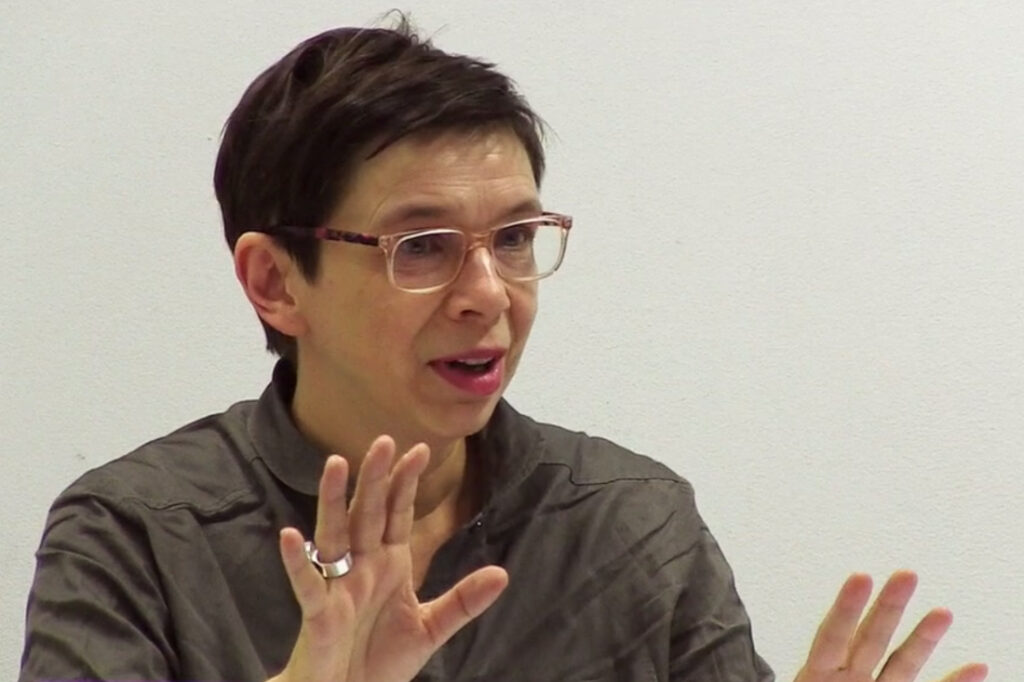
In this interview, Laurence Rassel talks about her work with and inside institutions as emerging through continuous communal practice. She discusses the importance of feminist thinking, open-source technology culture, and Institutional Psychotherapy for her work of making an institution a practice of all of those involved, or in her words: instituting. Conducted by Cornelia Sollfrank as part of the Creating Commons research project.
https://creatingcommons.zhdk.ch/experimenting-with-institutional-formats/index.html
Berlin / October 2017
Interview mit Cornelia Sollfrank von Juliane Stiegele, veröffentlicht im Band Utopia Toolbox.2
http://www.utopiatoolbox.org/site/uploads/2020/05/UTOPIA_TOOLBOX.2_BlickinsBuch.pdf
Montréal / 2017
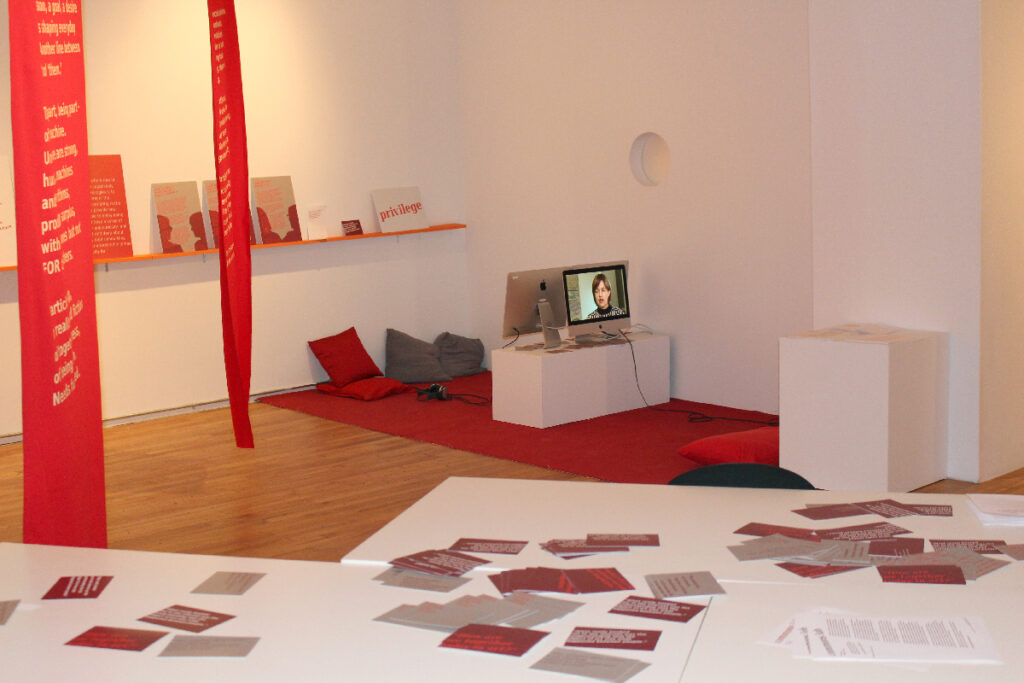
Commons Lab took place in 2017 at Studio xx in Montréal. It was a space for exploring issues that arise at the intersection of +feminism+digital+art+commons. A strong visual language created the framework within which workshops and screenings took place. In-person and group conversations reflected and tested tools and techniques of collaboration, and produced and shared knowledge and skills. Special attention was given to the collaboration between local and translocal actors.
Project website: https://artwarez.org/projects/commonslab/
Tokyo Photographic Art Museum / Tokyo / 10 – 26 Februrary 2017
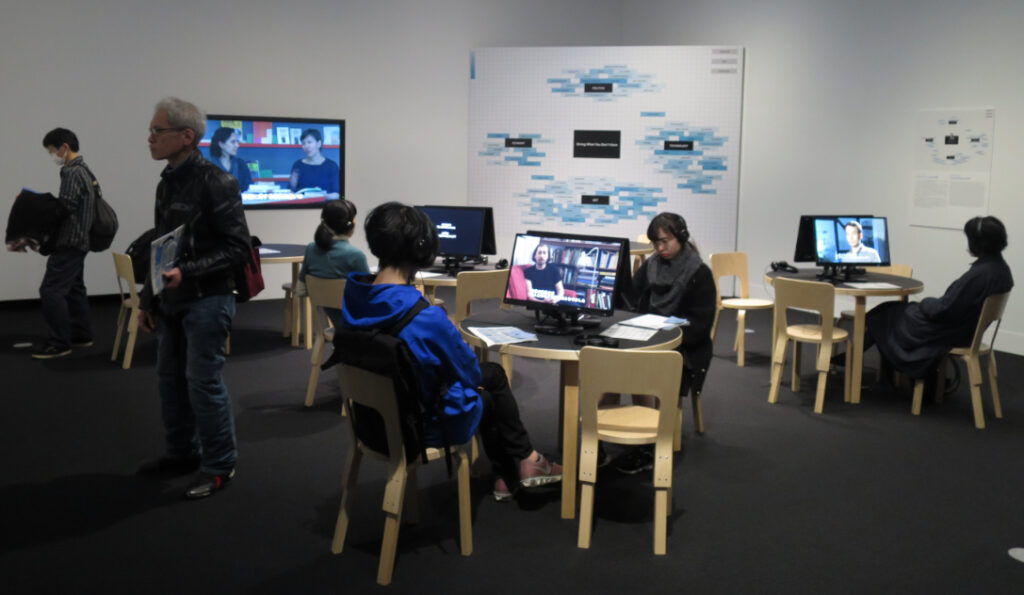
The project Giving What You Don’t Have is part of the exhibition Multiple Future at the Yebisu International Festival for Art and Alternative Visions.
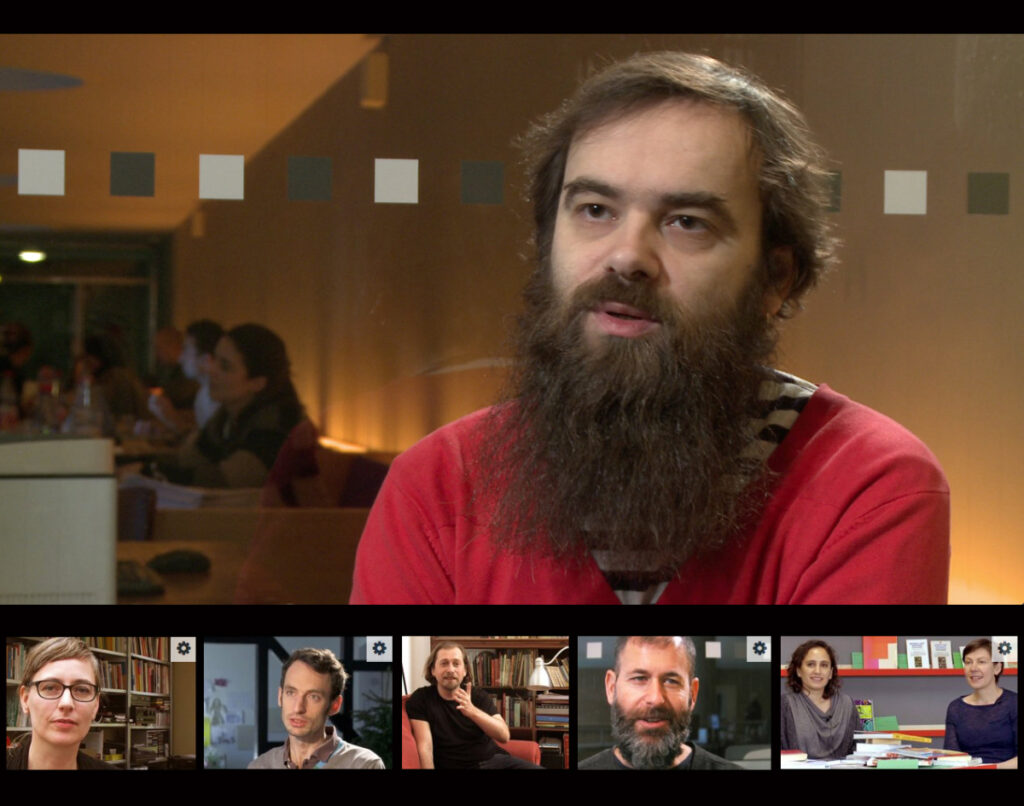
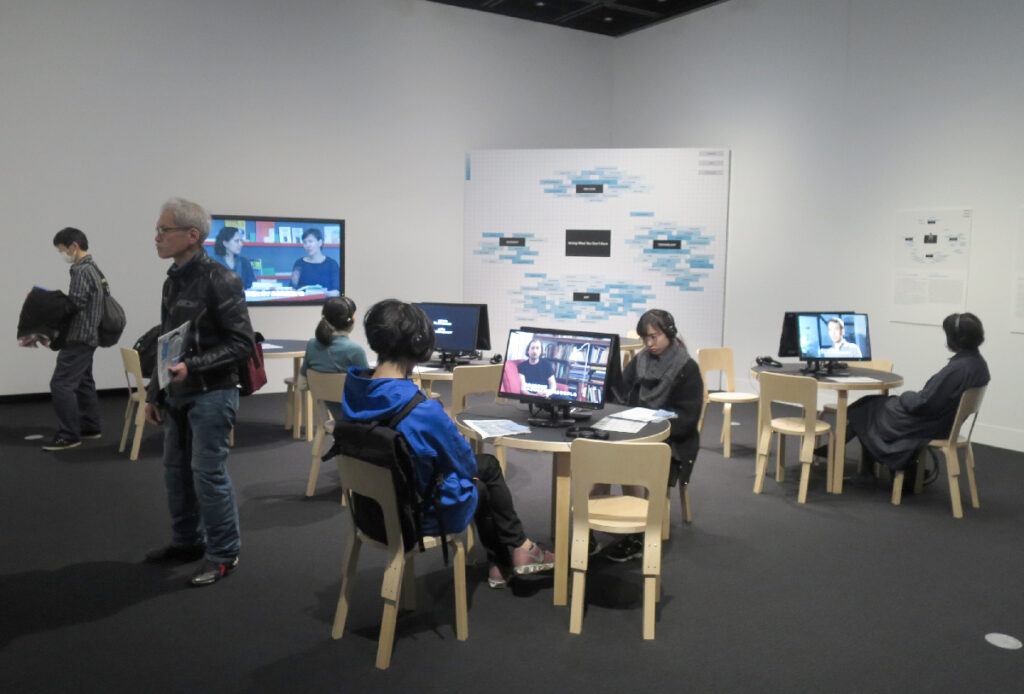
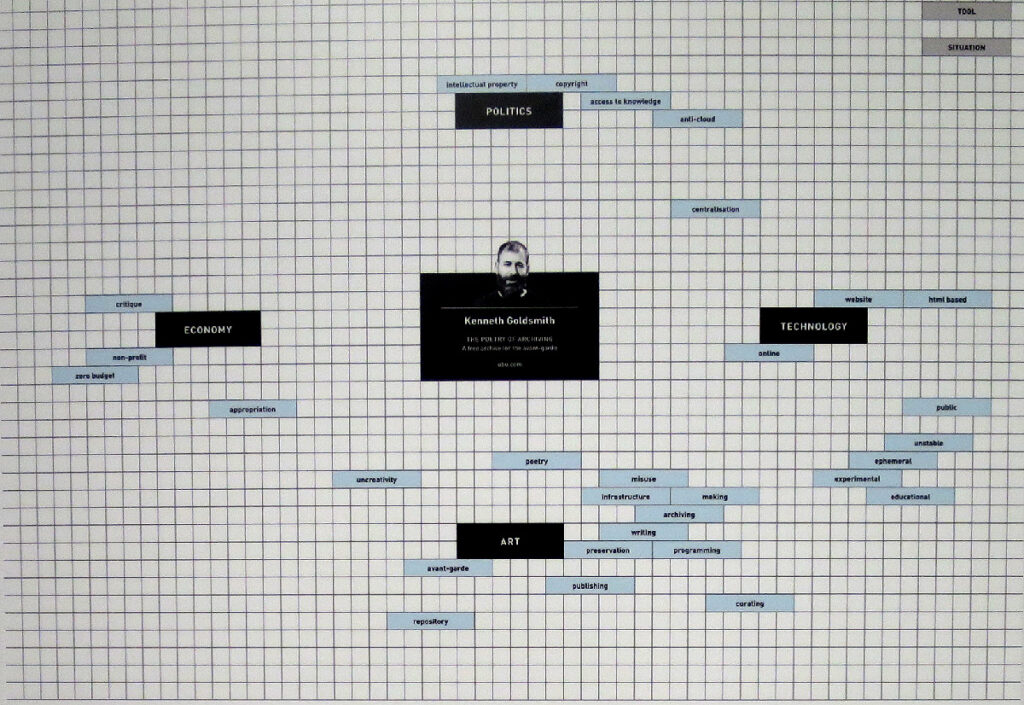
On the basis of filmed interviews, GWYDH collects and presents statements from artists whose work contributes to the production and preservation of digital commons. Artistic research project commissioned by the Post-Media Lab, Leuphana University, Lüneburg, Germany, 2013. Participants: Sean Dockray, Kenneth Goldsmith, Dmitry Kleiner, Marcell Mars, Piracy Project, Femke Snelting.